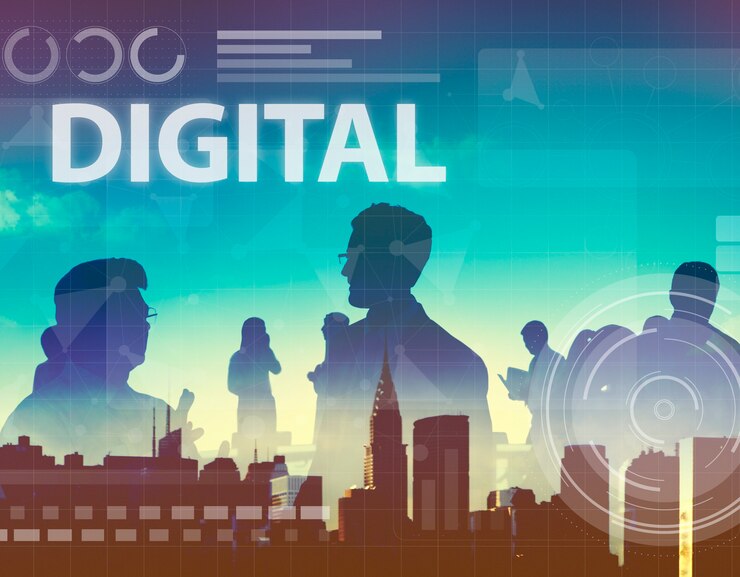- 1. The Rise Of Digital Integration
- Increasing adoption of technology…
- Sustainability Takes Centre Stage
- The Impact Of Social Media
- Bespoke And Personalised Experiences
- Emergence Of Hybrid Events
- What Role Does The Digital Twin Play?
- What Does The Future Hold?
- Events scene might make policies look outdated
- The latest tech revolution is here already…
- It is not very easy to predict the future
- Conclusion
The Evolution Of The UK Events Scene: A Glimpse Into The Past And The Future

Over the past decade, the UK’s events scene has undergone a transformation that few could have predicted.
From grassroots music festivals in the countryside to the grandeur of corporate events in the heart of London, every aspect of the scene has evolved, adapting to technological advancements, changing societal norms, and the needs and demands of the audience.
Let’s delve into the captivating journey of the UK’s events landscape over the past decade and cast an eye toward its promising future.
1. The Rise Of Digital Integration

In the early 2010s, most events primarily focused on face-to-face interactions and physical experiences. As the decade progressed, the integration of digital elements became pivotal. Virtual reality (VR) stations, augmented reality (AR) experiences, and live-streaming options became commonplace, allowing attendees to immerse themselves in events in ways they never had before.
Increasing adoption of technology…
All across the UK, there has been progress, and much of it has been contributed by digital technology. As per the country’s digital strategy, it has more start-ups, unicorns, and heightened scale-up investments as compared to Germany and France. Consistent development and technological advancements have declared the UK a world leader in technology.
We can witness developments in the field of artificial intelligence, quantum computing, and advanced semiconductor designs. All these years, the tech sector has been increasing at 7% every year- quicker than the entire UK economy.
Sustainability Takes Centre Stage
With the global focus on climate change and environmental issues, sustainability in the events scene grew in prominence. Event organizers shifted towards eco-friendly options – from using recycled materials for stage setups to offering sustainable food choices. This eco-consciousness is now a selling point, attracting attendees who value environmental responsibility.
Businesses can not ignore the environmental crisis anymore. Companies in and around the UK have started realizing that the energy transition is not as smooth as it appears. Both its economic and physical impacts can be catastrophic if sustainability is not put into place.
The Impact Of Social Media
Social media platforms, especially Instagram and Snapchat, played pivotal roles in the transformation of events. They allowed for real-time sharing, creating a FOMO (Fear Of Missing Out) effect. This also led to the rise of aesthetically designed event spaces, focusing on “Instagrammable” spots to attract more attendees.
Bespoke And Personalised Experiences
The one-size-fits-all approach to events became a thing of the past. Modern attendees expect bespoke experiences. This led to the rise of niche events catered to specific interests, whether it’s a yoga retreat in the Scottish Highlands or a vegan food festival in Bristol. Let’s take the discussion further with the example of Sainsbury.
This British supermarket is also the second-largest supermarket chain. It has a reputation for offering great quality and delicious food at extremely competitive rates. Even this business chain has been integrating new technologies in order to boost consumer experience and eventually drive sales.
Emergence Of Hybrid Events

The COVID-19 pandemic, although a huge setback for the industry, also accelerated certain trends. One such trend is the rise of hybrid events. These events, which combine both online and offline elements, offer flexibility and wider reach and have opened up the possibility for global participation.
One company, among many, echoing this transformative approach is Wildfire. Their modern stance on event planning subtly incorporates the latest technological trends while understanding the importance of sustainability and the power of social media in the contemporary world.
What Role Does The Digital Twin Play?
A focal point of this interpretation is the idea of digital twins. It is where the physical world meets the virtual clones of worldly objects. The emphasis is more on the requirements for universal languages that pave the way for seamless communication. The Metaverse collaboration pinpointed USD or the Universal Scene Description as the ultimate solution.
Here are a few use cases that justify this example:
- Factory of the Future by BMW used Omniverse to replicate their factory pipeline, which eventually allowed operators to build communication with virtual twins. Moreover, they could now operate cost-efficient simulations.
- Secondly, Ericsson made use of digital twins for optimizing 5G antenna positioning in multiple cities. This eventually led to effective antenna placement as well as substantial money savings.
- Finally, Nvidia discovered the blend of digital twins and generative AI with the extensions of “Room Generator.”
What Does The Future Hold?
The UK seeks to transform its progressive politics to address the challenges it has been facing in the past decades. Thought leaders and experts are expediting optimistic and bold technological transformations. The country seeks to stimulate economic development with the integration of sustainable technologies. However, there are a few facts that might make industrialists comfortable:
Events scene might make policies look outdated
Due to technological advancements, even the best policies of the present might appear outdated after a few years. Decisions taken by the government might influence the future of communities, individuals, and, eventually, businesses. For a few times, the ongoing technological march indicates the pace of change that overwhelmed business capacities.
The latest tech revolution is here already…
We all are in a period of sudden transformation. But the good news is- the latest technological revolution has entered the world already. Geography will no longer determine access to opportunity; connectivity will. Communication is both global and instant- making challenges for the way we communicate.
It is not very easy to predict the future
Since change is coming, there are both pros and cons associated. The biggest difficulty lies in where the future is heading. Industrialists often fall into the trap of overselling and looking for long-term benefits. With a few technological advancements, it has become difficult to predict what’s coming next in the future.
Conclusion
In conclusion, the UK’s events scene has witnessed a sea change over the past decade. As we look ahead, the future of events in the UK seems not just promising but also exhilarating, with companies like Wildfire subtly pushing boundaries and leading the change.
Read Also:










